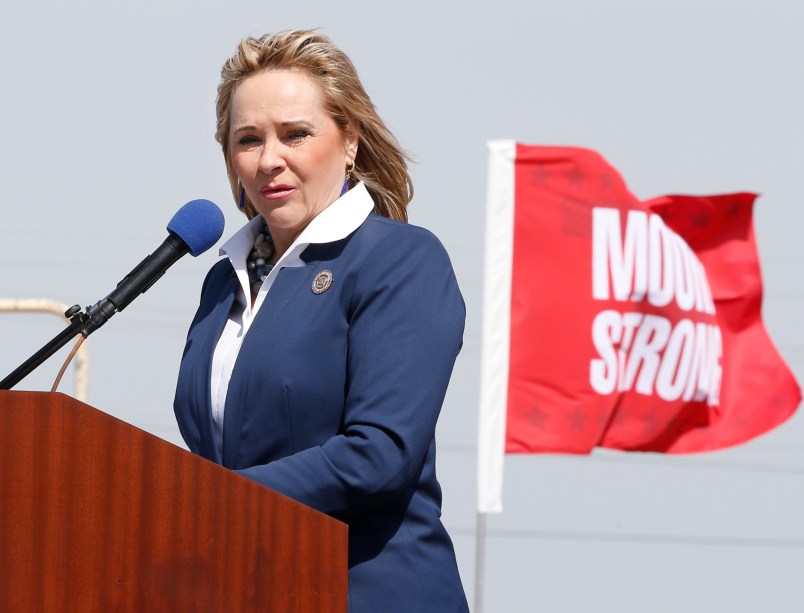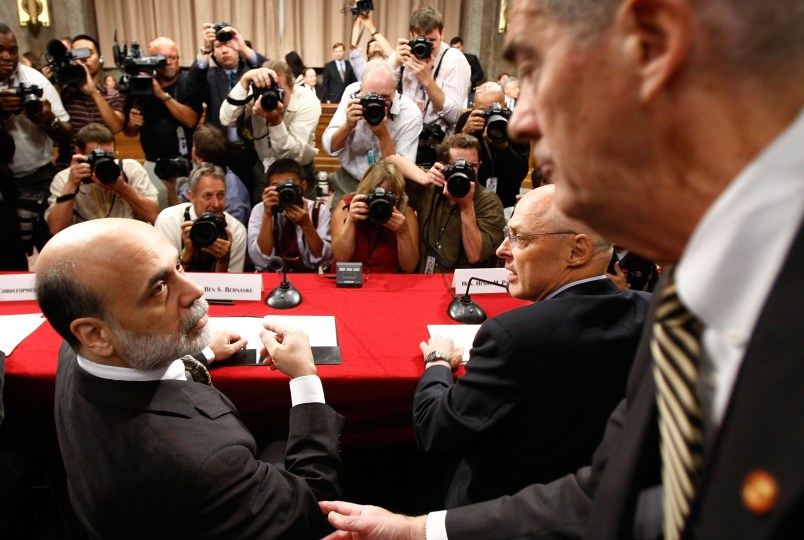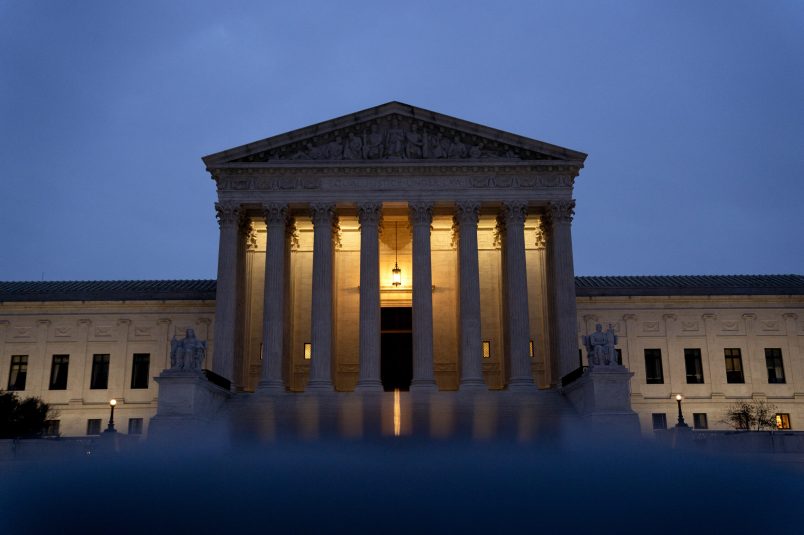About a month ago, the U.S. Chamber of Commerce hosted an event designed to “confront the myths” about the Common Core State Standards—and thereby shore up conservative support. Five former Republican governors sat on stage and thoughtfully explained why they believe the Common Core is a critical reform for American schools. They explained that the standards — developed by the National Governors Association (NGA) and other state-based groups — are a critical part of improving American public education and developing a highly-skilled, world-class workforce.
Two days later, four conservative mothers in Oklahoma celebrated the penultimate victory in a multi-year crusade, as the state’s legislature passed bills to abandon the standards. Under intense political pressure, Republican Gov. Mary Fallin — the current NGA chair and a strong supporter of the standards — signed legislation to allow Oklahoma to abandon the Common Core standards on June 5. Fallin’s signature initiative as chair of the NGA? “Education and Training for Tomorrow’s Jobs,” which she believes will “will require significant improvements to our education system and workforce training programs.”
The distance between the Chamber’s event in D.C. and Oklahoma’s lobbying moms illuminates something that media coverage of the Common Core generally misses: the Common Core is only really politically relevant for its opponents.
Critics of the standards — like the mothers behind “Restore Oklahoma Public Education” — see this as a first-order, vote-determining political argument. Emmett McGroarty, education director at the conservative American Principles Project, recently said that “Common Core has become a flashpoint election issue,” and that may even understate matters a bit. For many of these folks, it has approximately the same political juice as traditionally polarizing issues like abortion and gun control. They don’t just oppose the Common Core — they loathe it intensely and scorn its supporters as deluded and even un-American. Politicians who press the “Common Core is an abomination” button get an sudden jolt of passionate support.
The critics are particularly powerful in conservative states with politically ambitious leaders, like South Carolina and Louisiana, since there’s considerable overlap between the GOP presidential primary electorate and Common Core opposition. The parent activists in Oklahoma have analogues in Indiana (which dropped the standards in March), South Carolina (which dropped out this month), and throughout the country.
In contrast, supporters see them as a reasonably good idea that is not, ultimately, something that would decide their vote. These folks agree that, hey, the Common Core seems pretty sensible, but you know, the USA-Germany game is on in a minute, and what do you think of Michael Bradley’s play so far? Talk about needing to raise standards, amirite? They’ll tell a pollster that they support the standards, insofar as they know about them, but they’re not about to canvass their neighborhood to keep them. At best, Common Core supporters make tepid videos like this one from Louisiana’s business community. Candidates who press the “I support the Common Core button” get nods and questions about tax rates—along with fury from the standards’ opposition.
This is why coverage pointing out that “hey, polls show that only a minority of Americans oppose the Common Core” is misleading. It’s also why other red states are going to drop the standards. In our democracy, a motivated minority defeats a distracted, complacent majority every time—especially when gubernatorial or presidential primaries are looming.
Finally, it also points to a problem with the common “far right and far left both oppose the Common Core” narrative. As Louisiana Governor Bobby Jindal (R-2016) was demagoguing his state out of the standards, American Federation of Teachers president Randi Weingarten was at an American Enterprise Institute event (!) reiterating her support for them. Lefty opponents usually have concerns about the assessments attached to the standards and the use of those assessments in teacher evaluations. Remove those from the equation, and they’re largely indifferent about the project.
But conservative opponents oppose the Common Core on ideological — or conspiratorial — grounds that generally can’t be addressed without scrapping the entire initiative. Conservative politicians who stand up for the standards only earn themselves scorn and the threat of a primary challenge. That’s why the Common Core really is in more trouble than most polls suggest. And it’s trouble that “new partnerships” between current and former governors can’t fix.
Conor P. Williams, PhD is a Senior Researcher in New America’s Early Education Initiative. Follow him on Twitter: @conorpwilliams. Follow him on Facebook.










In Michigan the opposition seems to be driven by extremist nut jobs, but the so-called mainstream Republicans facilitated and humored them with hearings.
See Diane Ravich
http://dianeravitch.net/category/education-reform/
On education “reform” and common core.
If you don’t know who she is you haven’t been paying attention.
" In our democracy, a motivated minority defeats a distracted, complacent majority every time—especially when gubernatorial or presidential primaries are looming."
This. And one of the defining features of such minorities is the abiding conviction that they represent the will of some mythical “true majority.” Every once in a while, in this country, usually in a presidential election year, a motivated majority can step up to trim them back, but as soon as their attention wanes, they seep back, more resilient than ever, in like a rebound infection when someone doesn’t finish their full course of antibiotics.
Well, Pythagoras’ Theorem should be taught in the home, when parents feel the time is right to learn about those deviant triangles, not when jackbooted teachers think kids need to know!
Don’t get me started on parallelograms! Or that damn pi, can’t nail that slippery bastard down.
I live in a red state that has been trashing Common Core from theGOP.
Of course, these idiots also champion home schooling by unprepared
parents wanting to teach narrow theology more than math, science
and writing skills. Nationally, we should all try Common Core. It does
raise the standards. If it has problems, then tweek it and improve it.
Doing nothing only guarantees that we will continue to fall behind even
further globally.